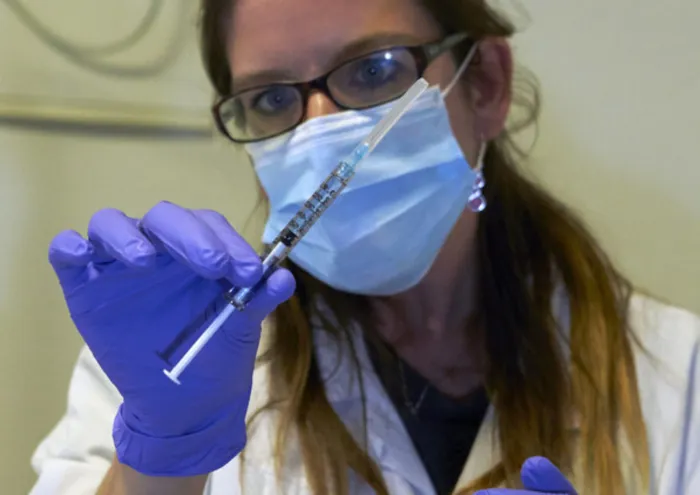Immunotherapy drug to treat lung cancer

File photo: Farrar praised the enormous global effort made to get clinical trials up and running to try to test experimental vaccines during West Africa's Ebola outbreak. File photo: Farrar praised the enormous global effort made to get clinical trials up and running to try to test experimental vaccines during West Africa's Ebola outbreak.
London - Lung cancer patients are to be offered a “game-changing” treatment that trains the body to single out and attack diseased cells.
It is being made available under a British government policy that enables life-saving treatments to be fast-tracked through the licensing process that usually takes years.
Administered in a vaccine every two weeks, the drug nivolumab works by teaching the body’s immune system to attack cancerous cells.
Evidence shows the effect continues for several years after the treatment has stopped. Experts have hailed such immunotherapy as a “new era” in the fight against cancer. Early trials have suggested it doubles survival rates.
Doctors will be able to offer nivolumab free to patients with advanced lung cancer. The costs will be footed by the manufacturer, Bristol-Myers Squibb.
The therapy differs from “blanket” treatments such as chemotherapy and radiotherapy which kill all cells including healthy ones. This means there are fewer debilitating side effects such as fatigue, sickness, hair loss and infections caused by healthy cells being destroyed.
Some skin cancer patients previously diagnosed as terminal have been able to return to work following immunotherapy. They only need to top up jabs every few months.
Lung cancer is one of the deadliest forms of the illness. Only five percent of patients are still alive ten years after diagnosis.
It is also the second most common – after breast in women and prostate in men – with 43 000 new cases each year.
Nivolumab is the third treatment made available through the Early Access To Medicines Scheme which bypasses red tape that can last up to a decade.
Manufacturers submit data on prnew drugs to experts at the Medicines and Healthcare Products Regulatory Agency for assessment. If the watchdog is satisfied the treatment can be beneficial without causing harm, it is made available to patients.
Costs are covered by the manufacturer until the drug is formally licensed in the usual way.
The scheme means patients are effectively guinea pigs testing out new drugs and possible side effects, but the government hopes it will save hundreds of lives.
George Freeman, Life Sciences Minister, said: “The positive scientific opinion of nivolumab offers real hope to those who need it most…I hope this is just one of many drugs that will be made available.”
A trial involving 272 patients found 42 percent taking nivolumab were alive a year later, compared with just 24 percent who had chemotherapy. Some of those on the drug are still living two years on.
Dr Tom Newsom-Davis, consultant cancer specialist at Chelsea and Westminster Hospital, said: “Lung cancer is one of the most difficult to treat… early access to nivolumab is therefore very positive… patients have the potential to access a new medicine which has shown in clinical studies to offer significant extension of survival.”
Manufacturers say 10 000 UK patients could benefit from the jab. Last month experts said immunotherapy was a “game-changer” and the biggest breakthrough since chemotherapy.
Daily Mail